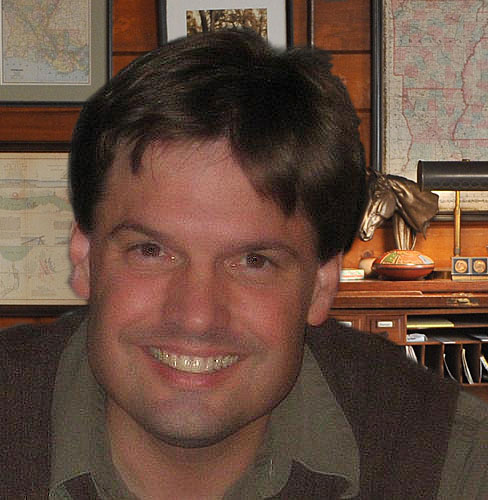[powerpress]
AR#15 – Advent Reflections with Deacon James Keating, Ph.D.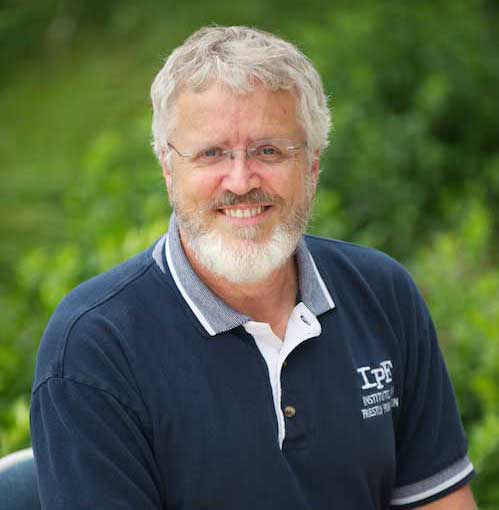
Family life can be very stressful. We all have expectations. We all have dreams for our families. But sometimes, our expectation and our dreams can be imposed and cause stress. Each member of our family is growing at the rate that God wants them to grow. Grace is maturing in our children. Grace is transforming our spouses. This Advent, in the very heart of our homes, let’s practice the virtue of Patience. Let’s practice the charitable act of allowing each person to grow according to the grace that they can receive. This Advent let’s rejoice, in the very midst of our family, that each member of our family is different, growing and maturing in God in their own way, and at their own pace. And let’s not despair at this growth or maturation, for God loves your children more than you do. God loves your spouse more than you do. Entrust your children and your spouse to God, and then watch them grow.
Deacon James Keating, PhD, the director of Theological Formation for the Institute for Priestly Formation, located at Creighton University, in Omaha, is making available to “Discerning Hearts†and all who listen, his series of programs entitled “The Heart of Hopeâ€.
For more information on the “Institute of Priestly Formation†and for other material available by Deacon Keating, just click here
Don’t forget to pickup a copy of “Communion with Christ†, it is one of the best audio sets on prayer…ever!
This entry was posted on Tuesday, December 23rd, 2014 at 4:06 pm
You can follow any responses to this entry through the RSS 2.0 feed.
From Anthony’s “Beginning to Pray” blog
Blessed Elisabeth of the Trinity helps us open our hearts to the coming of Christ. Â On the twelfth day of her Last Retreat, she offers a reflection on “the Word became flesh and dwelt among us.” Â Jesus has come to give us peace through opening up access to the Father’s house.
Whoever sees Christ sees the Father, and to see this love is to find that for which our hearts most long. Â This seeing, this contemplation, this knowledge is by faith. Â Here, faith is no mere assent to a body of information but a contemplative reality that seeks the saving truth and savors it. Â Faith is an encounter with the One whom the truths of our faith bear to us, and we believe what the Church proposes to us because we want to know Him. Â Whoever has surrendered his personal existence in response to the surpassing totality of love revealed by Christ crucified, this soul has gained access to the Father’s house, the freedom to go to our real spiritual home, the liberty that leads to our true peace.
Blessed Elisabeth sees the peace of Christ through the eyes of Saint Paul. Â Through the Blood of the Cross, the Lord leads all oppressive “Principalities and Powers” away “as captives, triumphing over them in Himself” (Col 2:15). Â Without the knowledge of Christ’s love, our dignity is vulnerable to all kinds of dehumanizing forces. Â But with the surpassing love we know in Christ Jesus, we are free from every form of irrational oppression — indeed, rather than rob of us dignity, the Lord permits all kinds of spiritual hardships only so that we might know the full extent of the greatness He calls us to and makes possible in our lives.
What the Apostle beheld in terms of oppressive cosmic forces, the Mystic of Dijon applies to our psychological powers.  Our interior battle with ambiguity and darkness in terms of our own patterns of thought and behavior is part of a cosmic struggle where evil powers attempt to overcome the light.  Just as Christ has taken diabolical powers captive, He also takes our psychological powers captive so that the ambiguity and confusion the emerges from them no longer robs us of our dignity as long as we persevere in believing in His love.  Her application  sees beyond the darkness of our interior frustrations to see the limitlessness of His mercy.
Beholding the unsurpassable love of the Lord, she understood how our limited powers of imagination, emotion, intuition, cognition and volition often hold us back. Â Without the Word of the Father, these powers subject us to a labyrinth of fears, anxieties, false judgments because they are subject, not to the truth, but to sin and disintegration. Â Left to their own, the powers of our soul frustrate that peace for which our hearts truly long.
Blessed Elisabeth also knew that Christ has the power to captivate, to hold even our own psychological powers captive. Â He does not lead our psychological powers by oppression and He is never violent. Â He attracts. Â He fascinates. Â He captivates – because in Him is the fullness of God, in Him all that is good, holy and true about humanity is revealed. Â His love is that beautiful and she knew this and longed for her friends to see it too. Â To see this love is to be freed from sin, to be raised up, to be capable of true praise.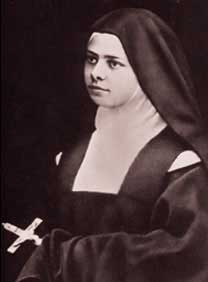
Techniques and methods rooted primarily in our own powers lack the freedom to achieve moral rectitude and cannot access the peace of the Father’s house. Â Instead, Blessed Elisabeth invites us this Advent to allow our hearts to be drawn into a greater silence and solitude. Â The surpassing love of Christ is known in our weakness, poverty, and thirst. Â By humbling accepting this poverty of heart, the beatitude of His presence is ours.
Our faith truly accesses God. Â Instead of attempting spiritual feats of devotion, Blessed Elisabeth invites us to simply surrender to His presence breaking in all around us. Â To turn our thoughts to His great love is already to lift up our hearts. Â To waste time thinking on what He has done for us by humbly entering our human poverty, this is already to begin to taste eternity.
He is the light in the darkness and the darkness cannot overcome Him. Â So in the inconvenience and difficult of our poverty and lack of love, He remains, waiting for us so that we, each of us, is awaited by an uncommon love. Â She invites us to allow ourselves to be captivated: this Word, the Word made flesh, does not disdain humble humanity but cherishes his own birth in its frail freedom.
Tags: Anthony Lilles, faith, hearts, love
This entry was posted on Monday, December 22nd, 2014 at 8:28 pm
You can follow any responses to this entry through the RSS 2.0 feed.
[powerpress]
AR#6 – Advent Reflections with Deacon James Keating, Ph.D.
One of our greatest sufferings as Christians, is our own impatience with ourselves. We want to be good and holy immediately. St. Francis de Sales said “Have patience with all things. But chiefly, have patience with yourself. Do not lose courage, in considering your own imperfections. But instantly set about to remedy them. Begin every day a task anew.” During Advent, lets make our new task a deeper prayer life, entrusting all our desires for goodness and holiness, to the Most Holy Trinity, who has infinite patience with us. And as we receive this amazing love from the Trinity, let us ask that our own characters be reformed, so that we might have real patience with one another.
Deacon James Keating, PhD, the director of Theological Formation for the Institute for Priestly Formation, located at Creighton University, in Omaha, is making available to “Discerning Hearts†and all who listen, his series of programs entitled “The Heart of Hopeâ€.
For more information on the “Institute of Priestly Formation†and for other material available by Deacon Keating, just click here
Don’t forget to pickup a copy of “Communion with Christ†, it is one of the best audio sets on prayer…ever!
This entry was posted on Saturday, December 20th, 2014 at 3:34 pm
You can follow any responses to this entry through the RSS 2.0 feed.
[powerpress]
AR-SP2- THE GIFT OF HOLINESS AT CHRISTMAS w/ Fr. Mauritius Wilde O.S.B., PhD. 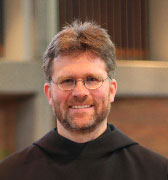
This reflection was given during a special advent evening of prayer and meditation service at St. Margaret Mary’s Church, in Omaha, NE on December 16. Fr.Mauritius  was joined by Deacon James Keating PhD. This if the second of two talks
Father Mauritius Wilde, OSB, Ph.D., did his philosophical, theological and doctoral studies in Europe. He is the author of several books and directs retreats regularly. He serves as Prior of our monastery in Schuyler.
 For more information about the ministry of the the Missionary Benedictines of Christ the King Priory in Schuyler, Nebraska visit here:
For more information about the ministry of the the Missionary Benedictines of Christ the King Priory in Schuyler, Nebraska visit here:
This entry was posted on Wednesday, December 17th, 2014 at 2:27 pm
You can follow any responses to this entry through the RSS 2.0 feed.
[powerpress]
AR-SP1- THE GIFT OF HOLINESS AT CHRISTMAS w/ Deacon James Keating, Ph.D.
This reflection was given during a special advent evening of prayer and meditation service at St. Margaret Mary’s Church, in Omaha, NE on December 16. Deacon Keating was joined by Fr. Mauritius Wilde OSB. This if the first of two talks.
Deacon James Keating, PhD, the director of Theological Formation for the Institute for Priestly Formation, located at Creighton University, in Omaha, is making available to “Discerning Hearts†and all who listen, his series of programs entitled “The Heart of Hopeâ€.
For more information on the “Institute of Priestly Formation†and for other material available by Deacon Keating, just click here
Don’t forget to pickup a copy of “Communion with Christ†, it is one of the best audio sets on prayer…ever!
This entry was posted on Wednesday, December 17th, 2014 at 2:10 pm
You can follow any responses to this entry through the RSS 2.0 feed.
AR#5 – Advent Reflections with Deacon James Keating, Ph.D.
[powerpress]
As human beings, we tend to sin. We all know this about our characters. And many times, it moves us to despair. God sees our sin, but He never loses his patience with us. And one of the reasons why God never loses His patience with His creation, is, of course, because He loves us. But also because His happiness is already fully possessed by Himself. He’s not like us when we get angry at our children, and try to move time forward; try to make things happen quickly. God is perfectly happy in Himself, and so He does no violence to time, or to people’s development. He waits. He calls. He shares His own happiness with us. And He knows in this patience that He fully possesses, that some day we will be attracted to such a powerful person, to such a peaceful person as he revealed Himself to be in Jesus. This Advent, don’t lose patience with yourself. Convert all desires to sin into Jesus’ own heart. Give it to him and He will give you a share in His own happiness.
Deacon James Keating, PhD, the director of Theological Formation for the Institute for Priestly Formation, located at Creighton University, in Omaha, is making available to “Discerning Hearts†and all who listen, his series of programs entitled “The Heart of Hopeâ€.
For more information on the “Institute of Priestly Formation†and for other material available by Deacon Keating, just click here
Don’t forget to pickup a copy of “Communion with Christ†, it is one of the best audio sets on prayer…ever!
This entry was posted on Thursday, December 11th, 2014 at 6:07 am
You can follow any responses to this entry through the RSS 2.0 feed.
AR#4 – Advent Reflections with Deacon James Keating, Ph.D.
[powerpress]
Human beings are called by God, to find their fulfillment patiently, to a life of cultivating virtue. We don’t become saints immediately, we don’t even grow in disdain of our sins immediately. For we are so attached to them, and the immediacy of pleasure that they give us, that it takes time for us to disconnect from that pleasure, and to cultivate a new love, for the only pleasure that lasts, God sharing His own happiness with us. This Advent, lets ask the Lord to open our hearts more deeply so that we can receive this happiness from Him. And in so receiving it, be healed of our impatience. For what is being given, and what is coming to us, is more than we could ever imagine.
Deacon James Keating, PhD, the director of Theological Formation for the Institute for Priestly Formation, located at Creighton University, in Omaha, is making available to “Discerning Hearts†and all who listen, his series of programs entitled “The Heart of Hopeâ€.
For more information on the “Institute of Priestly Formation†and for other material available by Deacon Keating, just click here
Don’t forget to pickup a copy of “Communion with Christ†, it is one of the best audio sets on prayer…ever!
This entry was posted on Monday, December 8th, 2014 at 8:51 am
You can follow any responses to this entry through the RSS 2.0 feed.
AR#3 – Advent Reflections with Deacon James Keating, Ph.D.
[powerpress]
As human beings, we have disordered desires. One of our greatest disordered desires, is to want things now, to be impatient, to want things through our own efforts, without waiting or co-operating with God’s will. To wait and cooperate with God’s will, is to unleash the wonderful character trait of trust. To entrust all of our desires, and all that we wish would be fulfilled into the person of Jesus Christ, whose only desire is our goodness, our happiness, our holiness. This Advent, let’s trust that God is thinking about us all the time, and moving creation in such a way that all that is good will be given to us. Let us ask him to heal our desire to want things now. And to renew within us the desire to want only holiness, to want only what God wants for us, for he knows what is best.
Deacon James Keating, PhD, the director of Theological Formation for the Institute for Priestly Formation, located at Creighton University, in Omaha, is making available to “Discerning Hearts†and all who listen, his series of programs entitled “The Heart of Hopeâ€.
For more information on the “Institute of Priestly Formation†and for other material available by Deacon Keating, just click here
Don’t forget to pickup a copy of “Communion with Christ†, it is one of the best audio sets on prayer…ever!
This entry was posted on Friday, December 5th, 2014 at 8:44 am
You can follow any responses to this entry through the RSS 2.0 feed.
[powerpress]
A commentary on the Diatessaron by St Ephrem
Keep watch: He is to come again
To prevent his disciples from asking the time of his coming, Christ said: About that hour no one knows, neither the angels nor the Son. It is not for you to know times or moments. He has kept those things hidden so that we may keep watch, each of us thinking that he will come in our own day. If he had revealed the time of his coming, his coming would have lost its savour: it would no longer be an object of yearning for the nations and the age in which it will be revealed. He promised that he would come but did not say when he would come, and so all generations and ages await him eagerly.
Though the Lord has established the signs of his coming, the time of their fulfilment has not been plainly revealed. These signs have come and gone with a multiplicity of change; more than that, they are still present. His final coming is like his first. As holy men and prophets waited for him, thinking that he would reveal himself in their own day, so today each of the faithful longs to welcome him in his own day, because Christ has not made plain the day of his coming.
He has not made it plain for this reason especially, that no one may think that he whose power and dominion rule all numbers and times is ruled by fate and time. He described the signs of his coming; how could what he has himself decided be hidden from him? Therefore, he used these words to increase respect for the signs of his coming, so that from that day forward all generations and ages might think that he would come again in their own day.
Keep watch; when the body is asleep nature takes control of us, and what is done is not done by our will but by force, by the impulse of nature. When deep listlessness takes possession of the soul, for example, faint-heartedness or melancholy, the enemy overpowers it and makes it do what it does not will. The force of nature, the enemy of the soul, is in control.When the Lord commanded us to be vigilant, he meant vigilance in both parts of man: in the body, against the tendency to sleep; in the soul, against lethargy and timidity. As Scripture says: Wake up, you just, and I have risen, and am still with you; and again, Do not lose heart. Therefore, having this ministry, we do not lose heart.
Excerpts from the English translation of The Liturgy of the Hours (Four Volumes) © 1974, International Commission on English in the Liturgy Corporation. All rights reserved.
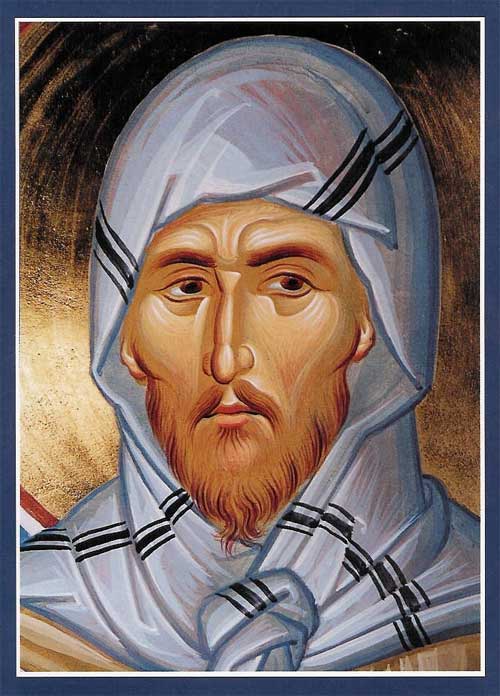
This entry was posted on Thursday, December 4th, 2014 at 1:51 am
You can follow any responses to this entry through the RSS 2.0 feed.
[powerpress]
From a sermon by Saint Bernard, abbot
The Three Comings of the Lord
We know that there are three comings of the Lord. The third lies between the other two. It is invisible, while the other two are visible. In the first coming he was seen on earth, dwelling among men; he himself testifies that they saw him and hated him. In the final coming all flesh will see the salvation of our God, and they will look on him whom they pierced. The intermediate coming is a hidden one; in it only the elect see the Lord within their own selves, and they are saved. In his first coming our Lord came in our flesh and in our weakness; in this middle coming he comes in spirit and in power; in the final coming he will be seen in glory and majesty.
In case someone should think that what we say about this middle coming is sheer invention, listen to what our Lord himself ways: If anyone loves me, he will keep my word, and my Father will love him, and we will come to him. There is another passage of Scripture which reads: He who fears God will do good, but something further has been said about the one who loves, that is, that he will keep God’s word. Where is God’s word to be kept? Obviously in the heart, as the prophet says: I have hidden your words in my heart, so that I may not sin against you.
Keep God’s word in this way. Let it enter into your very being, let it take possession of your desires and your whole way of life. Feed on goodness, and your soul will delight in its richness. Remember to eat your bread, or your heart will wither away. Fill your soul with richness and strength.
Because this coming lies between the other two, it is like a road on which we travel from the first coming to the last. In the first, Christ was our redemption; in the last, he will appear as our life; in this middle coming, he is our rest and consolation.
If you keep the word of God in this way, it will also keep you. The Son with the Father will come to you. The great Prophet who will build the new Jerusalem will come, the one who makes all things new. This coming will fulfill what is written: As we have borne the likeness of the earthly man, we shall also bear the likeness of the heavenly man. Just as Adam’s sin spread through all mankind and took hold of all, so Christ, who created and redeemed all, will glorify all, once he takes possession of all.
Excerpts from the English translation of The Liturgy of the Hours (Four Volumes) © 1974, International Commission on English in the Liturgy Corporation. All rights reserved.
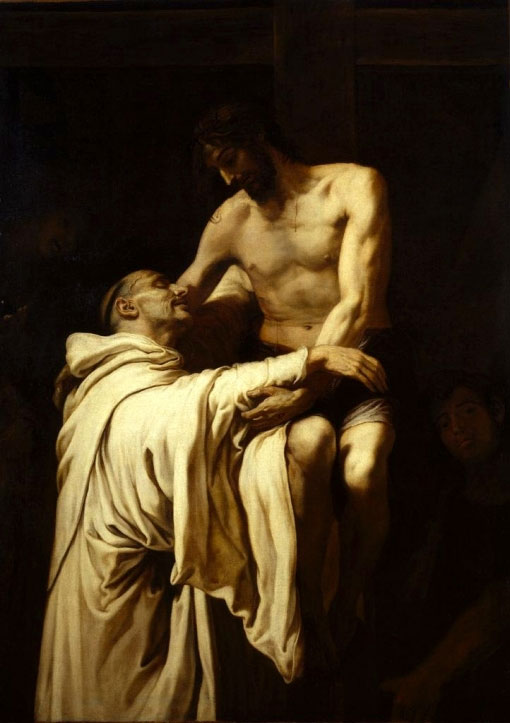
St. Bernard
This entry was posted on Wednesday, December 3rd, 2014 at 3:38 pm
You can follow any responses to this entry through the RSS 2.0 feed.
[powerpress]
St Gregory Nazianzen
The wonder of the Incarnation
The very Son of God, older than the ages, the invisible, the incomprehensible, the incorporeal, the beginning of beginning, the light of light, the fountain of life and immortality, the image of the archetype, the immovable seal, the perfect likeness, the definition and word of the Father: he it is who comes to his own image and takes our nature for the good of our nature, and unites himself to an intelligent soul for the good of my soul, to purify like by like. He takes to himself all that is human, except for sin. He was conceived by the Virgin Mary, who had been first prepared in soul and body by the Spirit; his coming to birth had to be treated with honour, virginity had to receive new honour. He comes forth as God, in the human nature he has taken, one being, made of two contrary elements, flesh and spirit. Spirit gave divinity, flesh received it.
He who makes rich is made poor; he takes on the poverty of my flesh, that I may gain the riches of his divinity. He who is full is made empty; he is emptied for a brief space of his glory, that I may share in his fullness. What is this wealth of goodness? What is this mystery that surrounds me? I received the likeness of God, but failed to keep it. He takes on my flesh, to bring salvation to the image, immortality to the flesh. He enters into a second union with us, a union far more wonderful than the first.
Holiness had to be brought to man by the humanity assumed by one who was God, so that God might overcome the tyrant by force and so deliver us and lead us back to himself through the mediation of his Son. The Son arranged this for the honour of the Father, to whom the Son is clearly obedient in all things.
The Good Shepherd, who lays down his life for the sheep, came in search of the straying sheep to the mountains and hills on which you used to offer sacrifice. When he found it, he took it on the shoulders that bore the wood of the cross, and led it back to the life of heaven.
Christ, the light of all lights, follows John, the lamp that goes before him. The Word of God follows the voice in the wilderness; the bridegroom follows the bridegroom’s friend, who prepares a worthy people for the Lord by cleansing them by water in preparation for the Spirit.
We needed God to take our flesh and die, that we might live. We have died with him, that we may be purified. We have risen again with him, because we have died with him. We have been glorified with him, because we have risen again with him.
Excerpts from the English translation of The Liturgy of the Hours (Four Volumes) © 1974, International Commission on English in the Liturgy Corporation. All rights reserved.
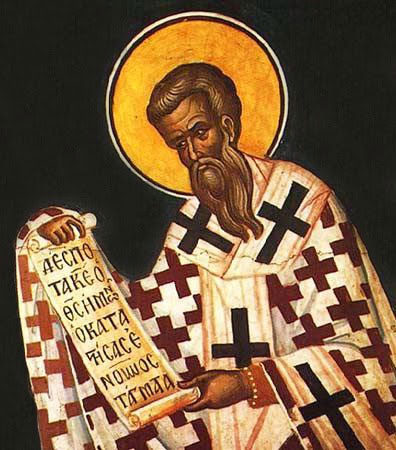
Tags: incarnation
This entry was posted on Tuesday, December 2nd, 2014 at 12:17 pm
You can follow any responses to this entry through the RSS 2.0 feed.
AR#2 – Advent Reflections with Deacon James Keating, Ph.D.
[powerpress]
We want everything accomplished right away. God only knows that accomplishment follows one thing after another. He knows that it takes time for us to learn what it means to be human, to be those who are loved so deeply by His most Sacred Heart, His mother, and the saints. He knows that it takes time for us to understand that His love, and the reception of His love, is the very origin of our joy. During Advent, we ask even with more fervor, to receive this love. And we ask for the grace to release this joy, especially through the intercession of the saints and the Blessed Mother.
Deacon James Keating, PhD, the director of Theological Formation for the Institute for Priestly Formation, located at Creighton University, in Omaha, is making available to “Discerning Hearts†and all who listen, his series of programs entitled “The Heart of Hopeâ€.
For more information on the “Institute of Priestly Formation†and for other material available by Deacon Keating, just click here
Don’t forget to pickup a copy of “Communion with Christ†, it is one of the best audio sets on prayer…ever!
This entry was posted on Tuesday, December 2nd, 2014 at 11:33 am
You can follow any responses to this entry through the RSS 2.0 feed.
[powerpress]
A pastoral letter by St Charles Borromeo
The season of Advent
Beloved, now is the acceptable time spoken of by the Spirit, the day of salvation, peace and reconciliation: the great season of Advent. This is the time eagerly awaited by the patriarchs and prophets, the time that holy Simeon rejoiced at last to see. This is the season that the Church has always celebrated with special solemnity. We too should always observe it with faith and love, offering praise and thanksgiving to the Father for the mercy and love he has shown us in this mystery. In his infinite love for us, though we were sinners, he sent his only Son to free us from the tyranny of Satan, to summon us to heaven, to welcome us into its innermost recesses, to show us truth itself, to train us in right conduct, to plant within us the seeds of virtue, to enrich us with the treasures of his grace, and to make us children of God and heirs of eternal life.
Each year, as the Church recalls this mystery, she urges us to renew the memory of the great love God has shown us. This holy season teaches us that Christ’s coming was not only for the benefit of his contemporaries; his power has still to be communicated to us all. We shall share his power, if, through holy faith and the sacraments, we willingly accept the grace Christ earned for us, and live by that grace and in obedience to Christ.
The Church asks us to understand that Christ, who came once in the flesh, is prepared to come again. When we remove all obstacles to his presence he will come, at any hour and moment, to dwell spiritually in our hearts, bringing with him the riches of his grace.
In her concern for our salvation, our loving mother the Church uses this holy season to teach us through hymns, canticles and other forms of expression, of voice or ritual, used by the Holy Spirit. She shows us how grateful we should be for so great a blessing, and how to gain its benefit: our hearts should be as much prepared for the coming of Christ as if he were still to come into this world. The same lesson is given us for our imitation by the words and example of the holy men of the Old Testament.
Excerpts from the English translation of The Liturgy of the Hours (Four Volumes) © 1974, International Commission on English in the Liturgy Corporation. All rights reserved.
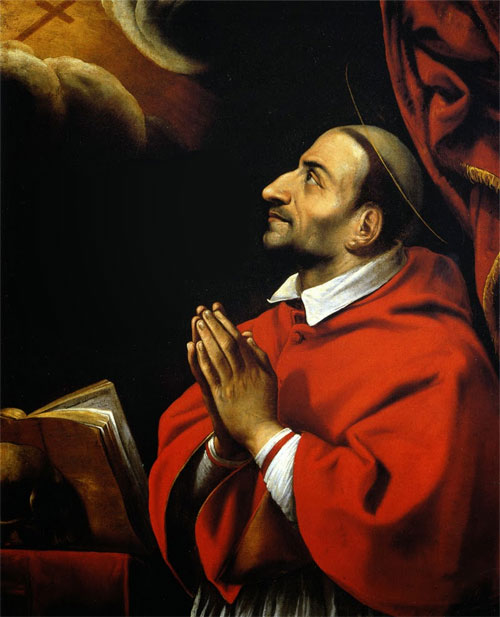
This entry was posted on Monday, December 1st, 2014 at 3:55 am
You can follow any responses to this entry through the RSS 2.0 feed.
[powerpress]
St Cyril of Jerusalem
The twofold coming of Christ
We do not preach only one coming of Christ, but a second as well, much more glorious than the first. The first coming was marked by patience; the second will bring the crown of a divine kingdom.
In general, whatever relates to our Lord Jesus Christ has two aspects. There is a birth from God before the ages, and a birth from a virgin at the fullness of time. There is a hidden coming, like that of rain on fleece, and a coming before all eyes, still in the future.
At the first coming he was wrapped in swaddling clothes in a manger. At his second coming he will be clothed in light as in a garment. In the first coming he endured the cross, despising the shame; in the second coming he will be in glory, escorted by an army of angels.We look then beyond the first coming and await the second. At the first coming we said: Blessed is he who comes in the name of the Lord. At the second we shall say it again; we shall go out with the angels to meet the Lord and cry out in adoration: Blessed is he who comes in the name of the Lord.
The Saviour will not come to be judged again, but to judge those by whom he was judged. At his own judgement he was silent; then he will address those who committed the outrages against him when they crucified him and will remind them: You did these things, and I was silent.
His first coming was to fulfil his plan of love, to teach men by gentle persuasion. This time, whether men like it or not, they will be subjects of his kingdom by necessity.
The prophet Malachi speaks of the two comings. And the Lord whom you seek will come suddenly to his temple: that is one coming.
Again he says of another coming: Look, the Lord almighty will come, and who will endure the day of his entry, or who will stand in his sight? Because he comes like a refiner’s fire, a fuller’s herb, and he will sit refining and cleansing.
These two comings are also referred to by Paul in writing to Titus: The grace of God the Saviour has appeared to all men, instructing us to put aside impiety and worldly desires and live temperately, uprightly, and religiously in this present age, waiting for the joyful hope, the appearance of the glory of our great God and Saviour, Jesus Christ. Notice how he speaks of a first coming for which he gives thanks, and a second, the one we still await.
That is why the faith we profess has been handed on to you in these words: He ascended into heaven, and is seated at the right hand of the Father, and he will come again in glory to judge the living and the dead, and his kingdom will have no end.
Our Lord Jesus Christ will therefore come from heaven. He will come at the end of the world, in glory, at the last day. For there will be an end to this world, and the created world will be made new.
Excerpts from the English translation of The Liturgy of the Hours (Four Volumes) © 1974, International Commission on English in the Liturgy Corporation. All rights reserved.
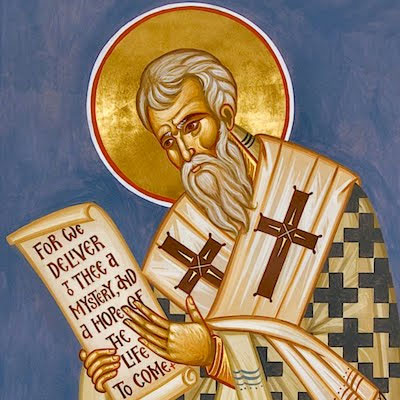
This entry was posted on Sunday, November 30th, 2014 at 7:38 pm
You can follow any responses to this entry through the RSS 2.0 feed.
AR#1 – Advent Reflections with Deacon James Keating, Ph.D.
[powerpress]
One of God’s attributes is patience. He suffers His own creation, as it comes to fulfillment in His love. The God that we worship is a God who truly loves us. And in this great love, He waits. He waits for us to respond to all that He has given us. And He doesn’t simply wait in a passive way. He keeps loving us, keeps directing His love toward our hearts to awaken them with a response. This is near the very core of what Advent is about. God loving us so deeply, directing His love toward us, and Him sharing His life with us, so that we might respond in kind. So that we might wait and receive, and then respond to His great love
Deacon James Keating, PhD, the director of Theological Formation for the Institute for Priestly Formation, located at Creighton University, in Omaha, is making available to “Discerning Hearts†and all who listen, his series of programs entitled “The Heart of Hopeâ€.
For more information on the “Institute of Priestly Formation†and for other material available by Deacon Keating, just click here
Don’t forget to pickup a copy of “Communion with Christ†, it is one of the best audio sets on prayer…ever!
This entry was posted on Sunday, November 30th, 2014 at 10:46 am
You can follow any responses to this entry through the RSS 2.0 feed.



